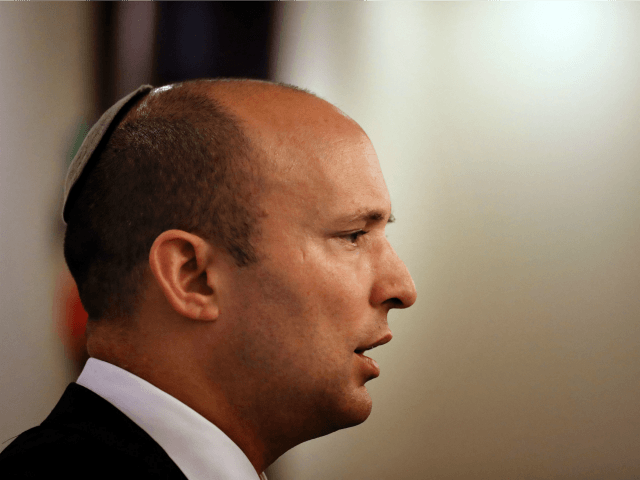Israel “fell asleep” after the signing of the 2015 nuclear deal between Iran and world powers, Israeli Prime Minister Naftali Bennett said Tuesday morning. He added that going forward his country would be far more aggressive in its approach to Tehran.
“The mistake we made after the first nuclear deal in 2015 will not repeat itself,” Bennett said at the Reichmann University conference in an implicit critique of his predecessor, Benjamin Netanyahu. “With all the noise beforehand, from the moment the deal was signed, it affected us like a sleeping pill. Israel simply fell asleep on duty. We occupied ourselves with other things.”
“We will learn from this mistake,” he promised. “We will maintain our freedom of action.”
“Even if there is a return to an agreement, Israel is of course not a party to it, and is not bound by it,” Bennett declared.
Bennett went on to say that he was when he entered office in June, he was shocked by the “gap between the rhetoric and the action regarding Israel’s preparations and capabilities against Iran’s nuclear program.”
He pledged that Israel will concentrate on defeating Iran itself instead of dealing with its terror proxies in Lebanon.
According to Bennett, it was a strategic mistake for Israel to allow Iran to entrench itself militarily in Syria. It is now incumbent on the Jewish state, Bennett said, to leverage its advantages, including it economy, international standing, democracy and cyber acumen, to gain the upper hand over the Islamic Republic.
“Israel is strong, successful, and open to the world,” he said, while Iran “cannot even supply water to its citizens.”
“A regime whose economy is weak and its government is corrupt, and rules with force and fear,” Bennett said.
He warned, however, that the regime “is at a very advanced stage of its nuclear program” with an uranium “enrichment machine [that] is broader and more sophisticated than ever.”
According to the International Atomic Energy Agency, Tehran had again increased its stockpiles of enriched uranium. As of November 6, those stocks were many times in excess of the limit laid down in the agreement with world powers, the Times of Israel reported citing the IAEA.

COMMENTS
Please let us know if you're having issues with commenting.